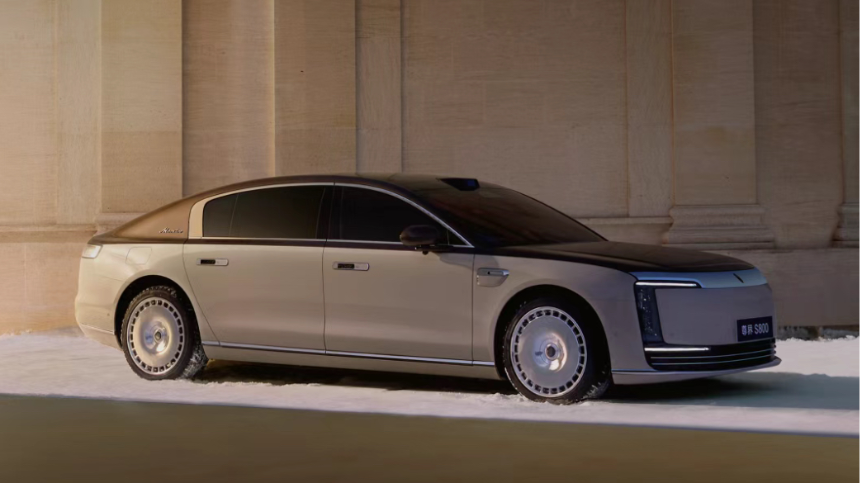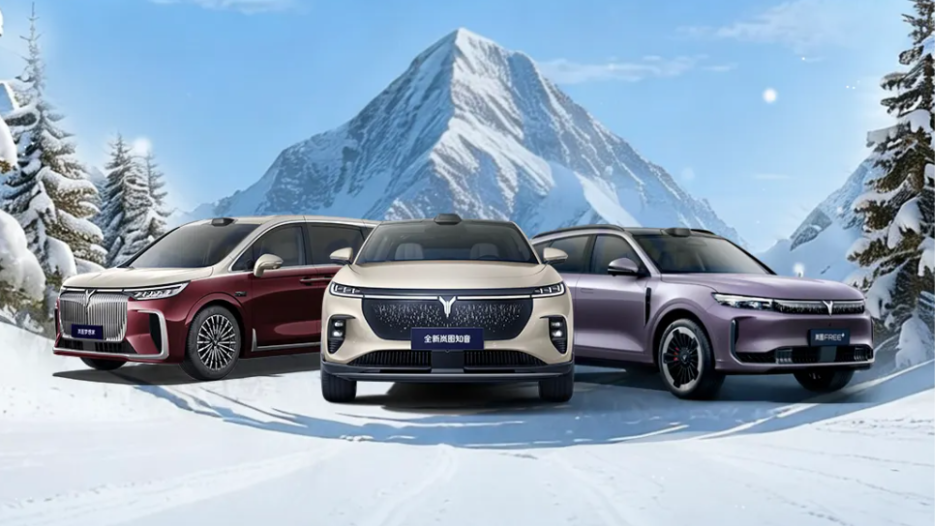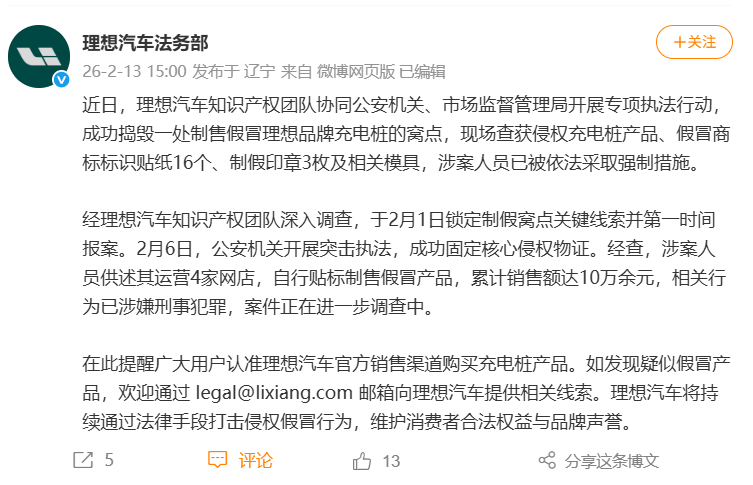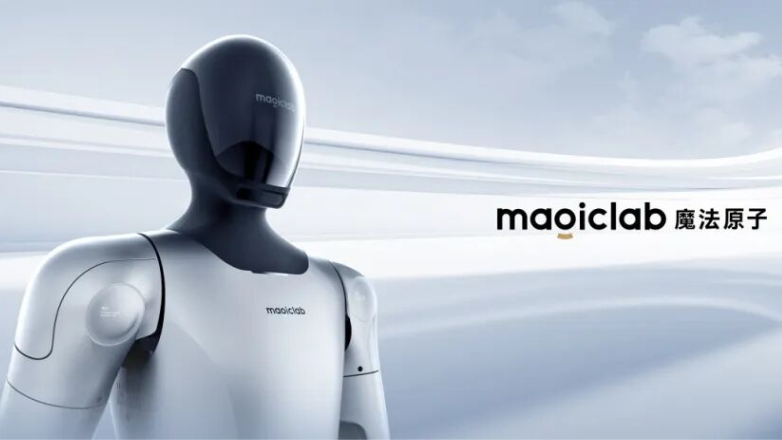As electrification and intelligent technologies reshape the automotive value chain, traditional suppliers are facing not only the challenge of technological iteration, but also a fundamental redefinition of their roles.
As the industry's focus shifts from hardware performance to software ecosystems, the merger of Schaeffler Group and Vitesco Technologies offers a unique vantage viewpoint on this transformation. Known globally for its precision mechanical engineering, the Germany-headquartered supplier is now breaking new ground in both mechatronics and software, aiming to redefine the value proposition of a supplier in the era of smart mobility.
As Mr. Matthias Zink, CEO of Powertrain & Chassis, Schaeffler AG, put it: "We've evolved from being a solution implementer to a co-creator of technology—this shift has elevated Schaeffler to a true strategic partner for OEMs and given us a more proactive role in the industry's transformation."
The AUTO SHANGHAI 2025 held particular significance for Schaeffler—it marked the company's first major public appearance since finalizing its strategic merger with Vitesco Technologies. The newly integrated Schaeffler showcased a full suite of solutions for electrified and intelligent vehicles.
"We're not only showcasing the deep integration of precision mechanics and mechatronic systems," Mr. Zink noted, "but also highlighting our now significantly enhanced capabilities in software and electronics after the merger."
The technical synergies anticipated from the merger are already materializing. For Mr. Zink, the strategic value of the merger lies in closing critical capability gaps—particularly in electronics and software.
"Previously, we lacked sufficient in-house R&D expertise in electronics and had a limited pool of software engineers. The merger has strengthened those areas considerably," he acknowledged.
By combining the two companies' strengths in precision mechanics and system development, Schaeffler has built a comprehensive product portfolio spanning everything from foundational components to fully integrated electric drive systems and advanced charging solutions.
In electrification field, the company has expanded into core areas such as power electronics and electric control units, while also advancing into adjacent fields like charging technologies and battery management systems. On the intelligence front, its reach now extends from smart actuators and steer-by-wire systems to vehicle access solutions and software-defined vehicle (SDV) platforms—laying the groundwork for autonomous driving capabilities.
This dual identity—as both a component supplier and a system solution provider—allows Schaeffler to maintain its legacy strengths in precision engineering while carving out new opportunities in intelligent vehicle technologies.
This leap in technical capability is also subtly reshaping how the company interacts with the wider automotive ecosystem. In the age of SDV, Schaeffler is no longer a passive supplier responding to OEM requirements.
"A few years ago, suppliers were largely passive. Today, we're actively involved in early-stage product development and technical planning of OEM clients. We're even contributing to our customers' strategic roadmaps, aligning closely with their core demands," Mr. Zink explained.
Mr. Zink believes that Schaeffler today resembles a technology company more than ever before. It now engages in equal, in-depth dialogue with OEMs’ senior engineers, CTOs, and strategic decision-makers—a level of collaboration that has fundamentally redefined the company's role as a traditional supplier.
Yet this transformation hasn't diluted Schaeffler's manufacturing DNA.
"We maintain full control over the entire process—from R&D to production," Mr. Zink emphasized. "This level of autonomy is especially critical in today's complex geopolitical climate."
Mr. Zink's message underscores not just technological ownership but also a pragmatic approach to industrialization. Today, Schaeffler has built out full in-house manufacturing capabilities for key electronics components across all major global markets. Its product portfolio spans the full chain—from electric control units and bearings to e-motors and gearboxes—allowing it to meet a range of customer needs, whether for single components or complete systems.
In an era marked by diverse powertrain technologies, Schaeffler has adopted a strategy that balances long-term vision with adaptability.
"We've always championed a diversified technology strategy," Mr. Zink said. "We set ambitious transformation goals for ourselves, while also leaving room for the evolution of multiple technological pathways."
He cited China as a clear example: the parallel development of range-extended electric vehicles, plug-in hybrid electric vehicles, and battery electric vehicles validates the flexibility of Schaeffler's approach. While electrification remains the industry's definite trajectory, Mr. Zink stressed that such transitions require time. By allocating R&D resources flexibly, Schaeffler ensures it can deliver high-quality solutions across various drivetrain formats—without prematurely locking itself into a single technology bet.
This open-mindedness is also evident in Schaeffler's cross-industry technology explorations. Drawing on its deep expertise in automotive mechatronics, the company is now extending core capabilities—such as planetary gear systems and drive solutions—into emerging fields like humanoid robotics.
"Whether you're controlling a vehicle's throttle, gearbox components, or door handles, or powering a robot's mechanical limbs—it all comes down to the fusion of AI and mechatronics," Mr. Zink explained.
"In cars, we talk about electric control systems. In robotics, we talk about 'software-defined wiggling.' But the core technologies are deeply connected."
Schaeffler has already delivered prototype products for humanoid robots, with further development underway.
These frontier innovations would not be possible without the strategic support of the Chinese market. China's pace of innovation and competitive intensity provide fertile ground for experimentation—and acceleration.
"The speed of development in China is astonishing," he said. It demands rapid response capabilities from suppliers, which in turn require autonomous decision-making and deep integration into the local industrial ecosystem.
To meet this challenge, Schaeffler has empowered its China team with significant decision-making authority across the full value chain—from product innovation and engineering design to mass production and delivery.
The company's China headquarters in Anting town, Shanghai, home to a dense cluster of automotive enterprises and suppliers, creates a natural innovation hub. It allows Schaeffler's local team to engage deeply with the industry value chain and respond quickly to evolving customer needs.
"Beyond their autonomy, the team here is technically outstanding," Mr. Zink said, "They combine deep local market insight with global perspective. Their self-motivation and togetherness are truly inspiring."
While recognizing the importance of speed in China, Mr. Zink also repeatedly emphasized the critical role of quality.
"Speed and quality must go hand in hand," he noted.
In his view, China's agility must be matched with uncompromising quality benchmarks—especially in electric powertrains, autonomous driving modules, and smart sensing technologies that are central to vehicle safety and customer trust.
"Our global systems give us the best of both worlds," Mr. Zink added.
"Our worldwide R&D network ensures technological reliability and manufacturing standards, while our local team in China translates that into rapid market responsiveness. That's the foundation for sustainable growth in this market."
Mr. Zink also touched on Schaeffler's strategic response to emerging technologies, its distinct innovation paths across business units, the dynamics and potential of the Chinese market, and the company's sustainability agenda.
For more insights, watch the full interview video and read the complete transcript.









